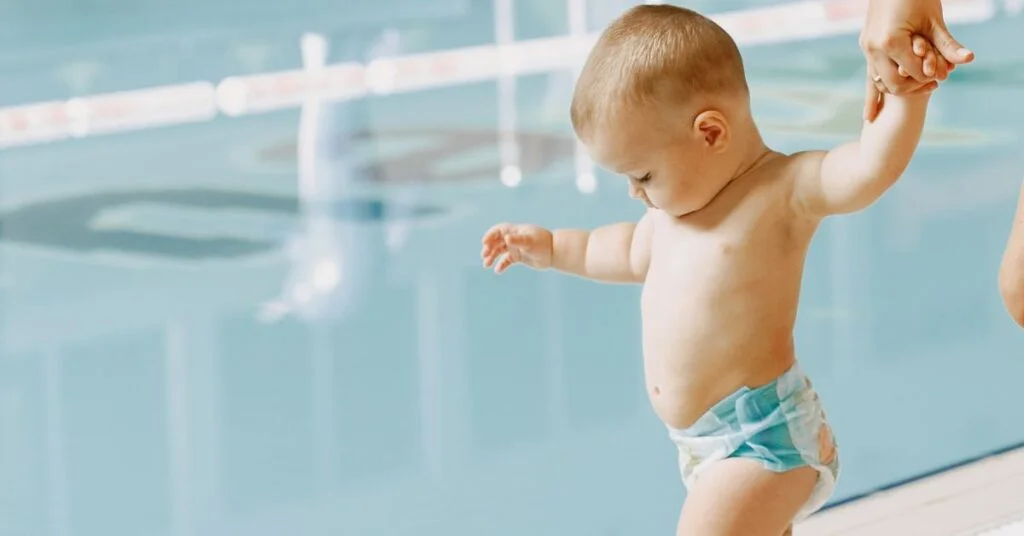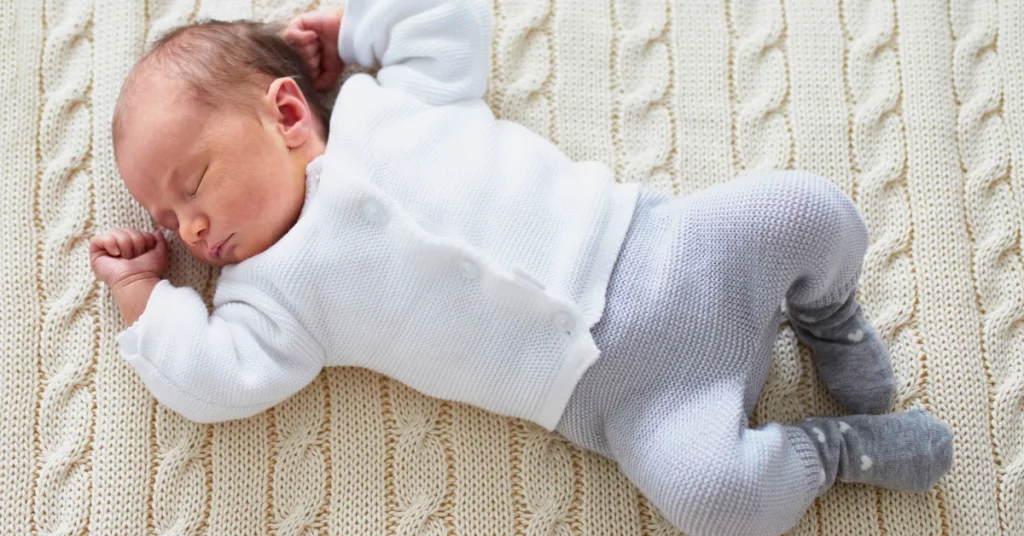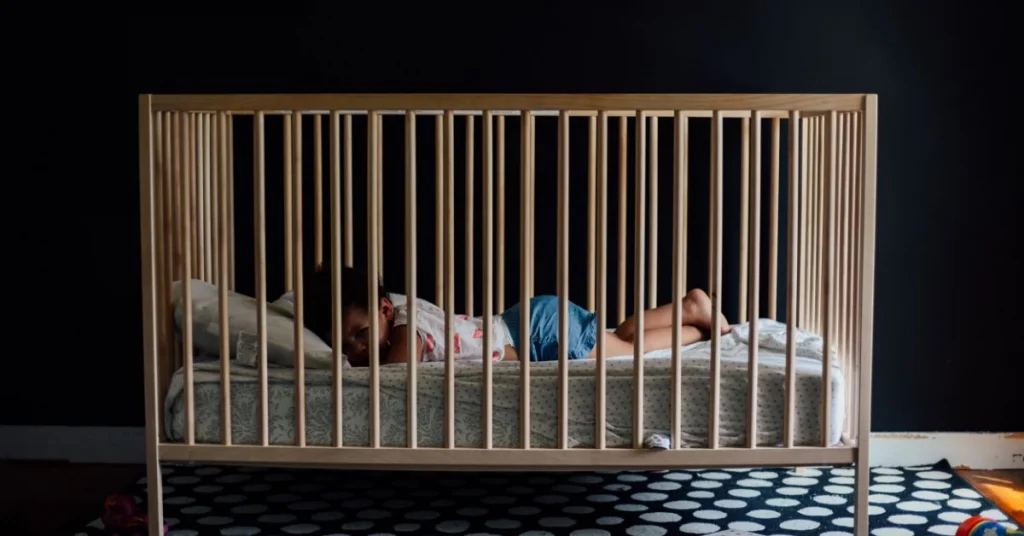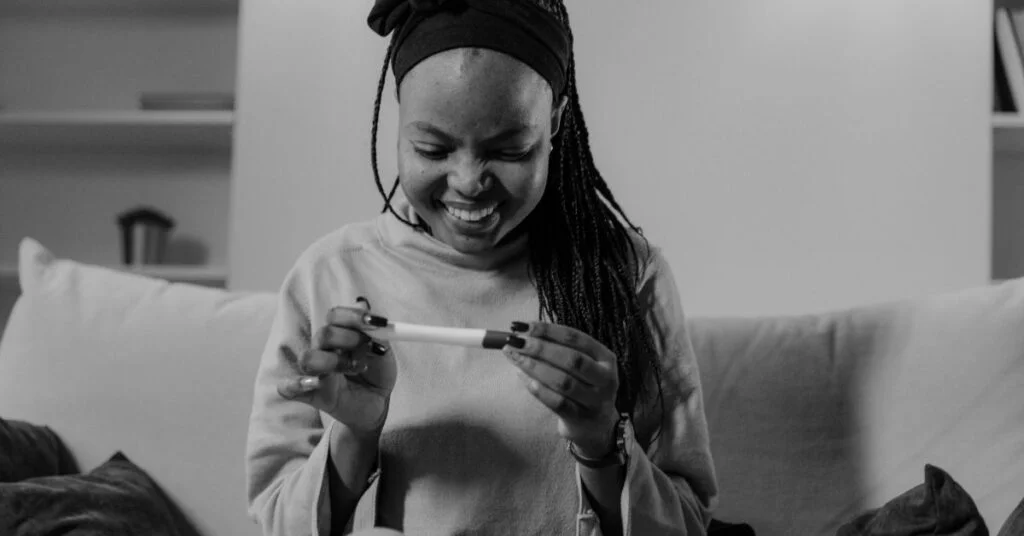Learn about using distilled water for baby formula and the importance of boiling water before using it to make baby formula.
The products mentioned on this page were independently selected by Babycious editors. As an Amazon Associate, Babycious may earn a commission from qualifying purchases.
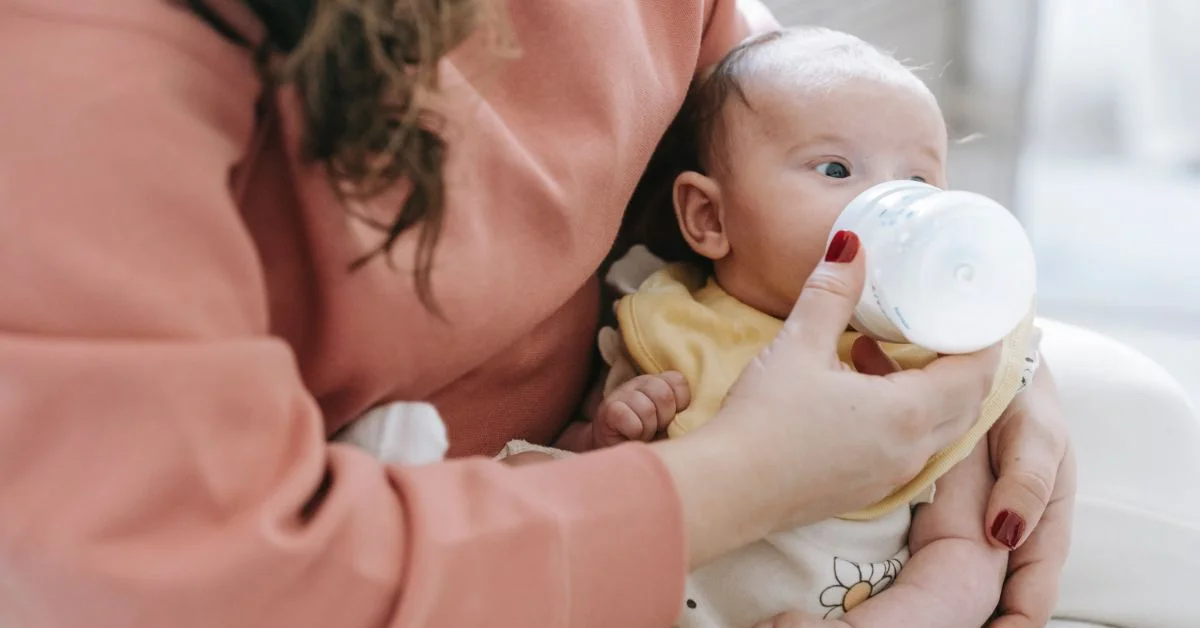
Photo by Sarah Chai
The internet is a wealth of information, but it can also be a minefield of conflicting advice. So when it comes to something as important as preparing your baby’s formula, you want to be sure you’re getting the best possible advice. That’s why we’re here to clear up any confusion about using distilled water for baby formula. So can you use distilled water for mixing your baby’s formula?
The short answer is yes, you can safely use distilled water for baby formula. Pediatricians and formula makers actually recommend using distilled water for mixing baby formula because it is the purest form of water and doesn’t contain any minerals, bacteria, viruses, or impurities that can be found in other types of water.
In what follows, we explore in depth the reasons why distilled water is a good choice for baby formula, as well as dispel any myths about using this type of water. We’ll also provide guidance on the importance of boiling water before using it to make baby formula, regardless of the type of water you use.
What Is Distilled Water?
Distilled water is water that has been collected from condensed water vapor. The process of distillation involves heating water until it turns to steam, then condensing the steam back into water. This leaves behind any impurities that were present in the original water sample.
Distilled water is often used in medical settings, as it is free of contaminants that could potentially cause harm. It is also used in scientific laboratories, where it is important to have a pure water sample for experiments.
In addition, many people use distilled water at home for drinking or cooking, as they believe it to be healthier than tap water. Whatever the reason, distilled water can be a valuable tool for anyone who needs a pure and contaminant-free water sample.
According to the CDC website, distillation is highly effective in removing the following water contaminants:
- Protozoa, such as Giardia lamblia and Cryptosporidium which are single-celled parasites that can cause gastrointestinal illnesses like diarrhea.
- Bacteria, such as Legionella pneumophila, and Escherichia coli, which can cause respiratory, ear, eye, and skin infections, as well as gastrointestinal illnesses like food poisoning.
- Viruses, such as hepatitis A and rotavirus, which can cause respiratory and gastrointestinal illnesses.
- Common chemical contaminants including arsenic, barium, cadmium, chromium, lead, nitrate, sodium, sulfate, and many organic chemicals.
So if you have reasons to doubt the purity of your tap water, or you simply prefer the peace of mind that comes with using distilled water, it is perfectly safe to use for mixing baby formula.
Common Misconceptions About Distilled Water
One of the most common misconceptions about distilled water is that it can make your baby sick because the distillation process strips the water of many salts and minerals normally present in water. While it’s true that distilled water is missing important minerals such as calcium, sodium, and magnesium leaving it “soft” or low in mineral content, these minerals are not essential for baby formula and will not cause any harm.
The formula contains all the necessary vitamins, nutrients, and minerals your baby needs, water is just a medium for mixing the formula so the purest your water the better.
Another common misconception is that distilled water is completely safe to drink for babies. This is also not true. While distilled water is generally safe to drink in small amounts, consuming large quantities of distilled water can lead to dehydration and other health problems both for adults and babies. Keep in mind also that babies should not be drinking any type of water before 6 months.
Do You Still Have to Boil Distilled Water for Baby Formula?
Because distilled water is pure and shouldn’t contain any contaminants, many parents are tempted to skip the boiling step and pour the water right from the gallon jug into the bottle.
But here’s the thing, boiling the water is not only a means of sterilizing the water itself, but it’s more about sterilizing the formula powder. Formula powder is not sterile, so boiling the water and using it while still hot (at least 158°F or 70°C) ensures that any germs, especially cronobacter, present in the powder are killed.
It’s important to follow the mixing instructions written on your can of powdered formula. Generally, the recommendation for mixing baby formula is to boil and then cool the water before adding powdered formula.
Another option is to make a batch of formula for up to 24 hours in advance and store it in the fridge (Dr. Brown’s formula pitcher makes this process so much easier). You can then either rewarm the bottle of formula (or not, some babies actually like their bottles cold).
How to Make Your Own Distilled Water at Home
Although, distilled water is not expensive (you can get a gallon jug of distilled water for about one dollar at most stores), it is possible to make your own distilled water at home if you don’t have access to it or if you just want to try it as an experiment.
All you need is a pot, a clean jar or a smaller pot, some fresh water, and a lot of patience/time. Here’s a step-by-step guide to distilling water at home:
1. Fill the bigger pot with fresh water, place the jar or smaller pot inside (without letting it fill up with water from the larger pot), and place everything on the stove.
2. Turn the heat up to medium-high and wait for the water to come to a boil.
3. Reduce the heat to low and place a lid on the large pot.
4. As the water vapor rises, it will condense on the surface of the lid and drip into the smaller pot or jar.
5. Once enough water has been collected, remove the glass container and allow the distilled water to cool before using.
By following these steps, you can make your own distilled water at home. The process can seem daunting but it’s doable. Apart from mixing baby formula, distilled water is an excellent choice for use in humidifiers or coffee makers, and other appliances that are sensitive to mineral buildup.
Bottom Line
Ultimately, the decision of whether to use distilled water or tap water for baby formula comes down to your personal circumstances and preference. If you have access to distilled water and want to use it, go ahead, it’s cheap, safe and one of the best types of water to use for mixing powdered baby formula!
The purpose of this article is informative and educational only. It’s not a substitute for medical consultation or medical care. We do not accept any responsibility for any liability, loss, or risk, personal or otherwise, incurred as a consequence, directly or indirectly, from any information or advice contained here. Babycious may earn compensation from affiliate links in this content.
